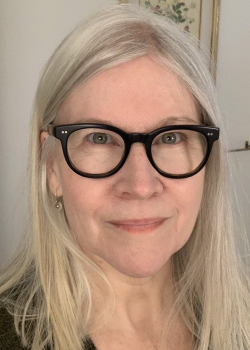
Historic Perspective of the COVID-19 Pandemic
UM Researcher Leads New International Postpandemic Recovery Project
We often think of history in terms of the ancient past, but when global events take place, the work of historians to record people’s experiences cannot wait until they become distant memories. During the COVID-19 pandemic community activism helped to shape government responses and vaccine rollouts, and a new project led by UM researcher, Dr. Esyllt Jones, will delve into untold stories from marginalized communities before they are lost.
As a historian of infectious disease, Jones sees community responses to the pandemic as part of a longstanding history of activism and advocacy to fill gaps left by larger-scale government responses. Jones and research partners Shauna MacKinnon, from the University of Winnipeg, and David Carey from Loyola University in Chicago, have received support from the New Frontiers and Research Fund Special Call for postpandemic recovery. The multi-disciplinary team will receive nearly $500,000 for their project, Democratizing Pandemic Recovery: Local Health and Housing Advocacy for Equitable COVID Recovery in Canada and Guatemala, which seeks to preserve social history by capturing diverse voices that don’t leave big traces.
“History and the humanities in general provide us with unique perspectives vital to ensuring that improvements in public health and vaccine access made during the pandemic are not lost,” says Dr. Mario Pinto, Vice-President (Research and International). “Dr. Jones has shown exemplary leadership in bringing together international experts to document and address the lingering impacts of the COVID-19 pandemic. Their work will help to foster a more equitable, sustainable, and resilient future for the most vulnerable members of society, both here in Manitoba and around the world.”
Pandemic responses by governments and hospitals are recorded for posterity in press releases and official reports. By contrast, the voices of marginalized people, especially those in rural Indigenous communities are rarely recorded, and are best preserved through oral history. “The two main themes of our study are health and housing security,” says Jones. “We’ve got a creative approach, with two different case studies, one in Winnipeg and one in rural Guatemala, to look at what these communities did to protect themselves, and to build a more just recovery.”

Dr. Esyllt Jones, Faculty of Arts
“This project dovetails with my ongoing work to document the history of community health centers in Winnipeg,” Jones explains. “In planning the COVID response issues of public trust became critically important. By documenting the strategies that got buy-in from people with a history of negative experiences with the state, we can help to support better and more inclusive public health services in the future.”
Two community health centres are contributing to the project locally— the Women’s Health Clinic, who has a history of community healthcare activism going back to the 1980s, and NorWest Co-op Community Health. Another is the West Central Women’s Resource Center, which successfully accessed federal government funds to address the increasing cost of housing since the pandemic. The impacts of these organizations have the potential to inform similar community-based initiatives around the world, if the responsiveness that underpins their successes can be captured and communicated.
Another participant is UM alumni Natalie Baird, a local artist who, alongside Toby Gillies, has worked with elders suffering with dementia. Applying their experience with community led art in the inner-city, “we’re going to use an art-based approach to help people express their needs, and the transformations they want to see in their communities, through a visual representation,” says Jones. “Here in Winnipeg that could become a gallery show, while in Guatemala it may take the form of a public mural.”
“Intangible forms of expression provide policy makers, and researchers like myself, an opportunity to form more intimate relationships with the communities where we work and live,” says Jones. “When we emphasize the important connections between local lived experience and global events, we hope that we’re contributing to future strategies and solutions that are better informed, from the bottom up.”
Once complete, the findings of the project will be archived for public access, using resources such as the UM Archives and Special Collections, and the Oral History Center at the University of Winnipeg. The team is also investigating additional options for digital engagement, to ensure that all documentation is freely accessible to all participates and communities world-wide who may benefit from the shared knowledge. The study will be ongoing for two years and is expected to conclude in 2025.
Research at the University of Manitoba is partially supported by funding from the Government of Canada Research Support Fund.






